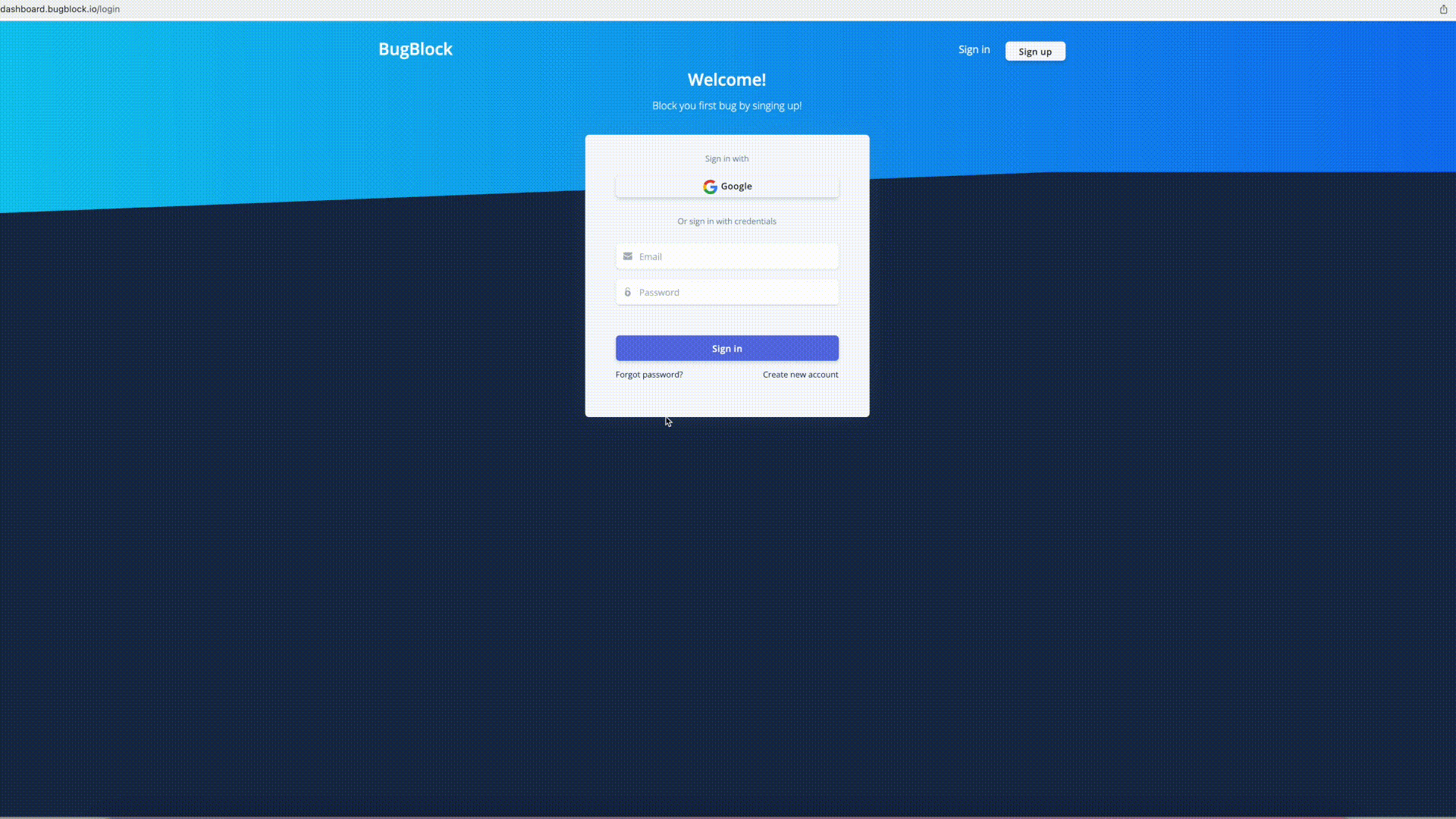BugBlock iOS SDK is providing you with the ability to get quick bug reports from users with network and custom console logs and an automatic crash reporting tool. To start you need to get an SDK token in our dashboard.bugblock.io

BugBlock iOS SDK is available for at:
- Swift package manager (SPM);
- Cocoa pods;
- import as an xcframework.
Add the following URL to your project. (XCode->Project->Package dependencies->+)
https://github.com/BugBlock/BugBlock-iOS
In the rules you need to choose Branch and then main.
Add the following pod to you Podfile
pod 'BugBlock'You can download the project from the git repository and add it as an xcframework. Our GitHub repository always contains xcframerork builds. There are two ways to get it:
- download latest one from here github.com/BugBlock/BugBlock-iOS/tree/main/build/BugBlock.xcframework
After importing an SDK you need to import the project in your AppDelegate:
import BugBlockThen start an SDK:
var config = BBConfiguration()
BBLog.start(appId: "Your SDK token", configuration: config)You're done.
Once you are already done with the initial setup. Let's go through some tips that may help you configure SDK to your needs.
Before starting SDK we need to create configuration. Struct BBConfiguration is responsible for the SDK configuration. All properties are false by default. If you need to enable something just pass true to respective property. Here is full list of possible properties:
var config = BBConfiguration()
config.consoleLoggingEnabled = false
config.serverLoggingEnabled = true
config.crashReportingEnabled = true
config.invokeByScreenshot = true
config.invokeByShake = trueAll are self-describing but one is special it's serverLoggingEnabled it should be used with network configuration only, otherwise, it will not take any effect.
To set up network request and response logging you need to pass the URLSessionConfiguration instance to the SDK:
let conf = URLSessionConfiguration.default
BBLog.networkLogging(with: conf)
let session = URLSession(configuration: conf)Keep in mind, to handle all network logs you need to use the session that you created above.
To prevent you from reading long lists of console logs produced by the iOS application. You can pass only the logs you need. It's pretty easy to make a custom console log:
BBLog.consoleLog(string: "Error description", logLevel: .error)To make it easy to differentiate log by level we've created those levels:
debug,
info,
warning,
error
If you want to identify a user when he reports an issue it will be easier to do with the user identity feature. There is two function that can help you to recognize a user in the report:
BBLog.user(name: "Test name")
BBLog.user(email: "info@example.com")By using this feature you can also send a silent report with user acknowledgment
BBLog.report()